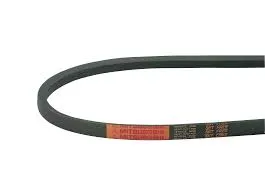- Arabic
- French
- Russian
- Spanish
- Portuguese
- Turkish
- Armenian
- English
- Albanian
- Amharic
- Azerbaijani
- Basque
- Belarusian
- Bengali
- Bosnian
- Bulgarian
- Catalan
- Cebuano
- Corsican
- Croatian
- Czech
- Danish
- Dutch
- Afrikaans
- Esperanto
- Estonian
- Finnish
- Frisian
- Galician
- Georgian
- German
- Greek
- Gujarati
- Haitian Creole
- hausa
- hawaiian
- Hebrew
- Hindi
- Miao
- Hungarian
- Icelandic
- igbo
- Indonesian
- irish
- Italian
- Japanese
- Javanese
- Kannada
- kazakh
- Khmer
- Rwandese
- Korean
- Kurdish
- Kyrgyz
- Lao
- Latin
- Latvian
- Lithuanian
- Luxembourgish
- Macedonian
- Malgashi
- Malay
- Malayalam
- Maltese
- Maori
- Marathi
- Mongolian
- Myanmar
- Nepali
- Norwegian
- Norwegian
- Occitan
- Pashto
- Persian
- Polish
- Punjabi
- Romanian
- Samoan
- Scottish Gaelic
- Serbian
- Sesotho
- Shona
- Sindhi
- Sinhala
- Slovak
- Slovenian
- Somali
- Sundanese
- Swahili
- Swedish
- Tagalog
- Tajik
- Tamil
- Tatar
- Telugu
- Thai
- Turkmen
- Ukrainian
- Urdu
- Uighur
- Uzbek
- Vietnamese
- Welsh
- Bantu
- Yiddish
- Yoruba
- Zulu
Jul . 10, 2024 15:24 Back to list
Importance of belts in engine performance and maintenance for optimal car functionality.
Belts in Car Engines
Belts are an essential component of car engines, playing a crucial role in transferring power from the engine to various parts of the vehicle. In typical car engines, there are several belts that perform different functions, such as the timing belt, serpentine belt, and drive belts. Each of these belts is essential for the smooth operation of the engine and the overall performance of the vehicle.
The timing belt, also known as the camshaft belt, is responsible for synchronizing the rotation of the crankshaft and camshaft. This synchronization is crucial for the proper opening and closing of the engine's valves at the right time, allowing for optimal engine performance. If the timing belt fails, it can lead to serious engine damage, such as bent valves or even engine failure.
The serpentine belt, on the other hand, is responsible for driving various engine accessories, such as the alternator, water pump, power steering pump, and air conditioning compressor. A worn or damaged serpentine belt can cause these accessories to malfunction, leading to poor engine performance and potentially causing the engine to overheat.
Drive belts, also known as accessory belts, drive components such as the power steering pump, air conditioning compressor, and water pump. These belts are crucial for the proper functioning of these components, and if they fail, it can lead to a loss of power steering, lack of air conditioning, or engine overheating

belts in car engines. It is important to regularly inspect and replace belts in car engines to prevent potential issues and maintain the smooth operation of the vehicle. Signs of worn or damaged belts include squealing or chirping noises, visible cracks or fraying, and engine overheating. Replacing belts in car engines is a relatively simple task that can be done by a qualified mechanic. The cost of replacing belts varies depending on the type of belt and the make and model of the vehicle. However, the cost of replacing belts is relatively low compared to the potential cost of repairs if a belt fails and causes engine damage. In conclusion, belts are an essential component of car engines, playing a crucial role in the smooth operation of the vehicle. Regular inspection and replacement of belts are essential to prevent potential issues and maintain the performance of the engine. If you notice any signs of worn or damaged belts, it is important to have them replaced promptly to avoid costly repairs and ensure the longevity of your vehicle.

belts in car engines. It is important to regularly inspect and replace belts in car engines to prevent potential issues and maintain the smooth operation of the vehicle. Signs of worn or damaged belts include squealing or chirping noises, visible cracks or fraying, and engine overheating. Replacing belts in car engines is a relatively simple task that can be done by a qualified mechanic. The cost of replacing belts varies depending on the type of belt and the make and model of the vehicle. However, the cost of replacing belts is relatively low compared to the potential cost of repairs if a belt fails and causes engine damage. In conclusion, belts are an essential component of car engines, playing a crucial role in the smooth operation of the vehicle. Regular inspection and replacement of belts are essential to prevent potential issues and maintain the performance of the engine. If you notice any signs of worn or damaged belts, it is important to have them replaced promptly to avoid costly repairs and ensure the longevity of your vehicle.
Share:
Latest news
-
Korean Auto Parts Timing Belt 24312-37500 For Hyundai/Kia
NewsMar.07,2025
-
7PK2300 90916-T2024 RIBBED BELT POLY V BELT PK BELT
NewsMar.07,2025
-
Chinese Auto Belt Factory 310-2M-22 For BMW/Mercedes-Benz
NewsMar.07,2025
-
Chinese Auto Belt Factory 310-2M-22 For BMW/Mercedes-Benz
NewsMar.07,2025
-
90916-02660 PK Belt 6PK1680 For Toyota
NewsMar.07,2025
-
drive belt serpentine belt
NewsMar.07,2025

